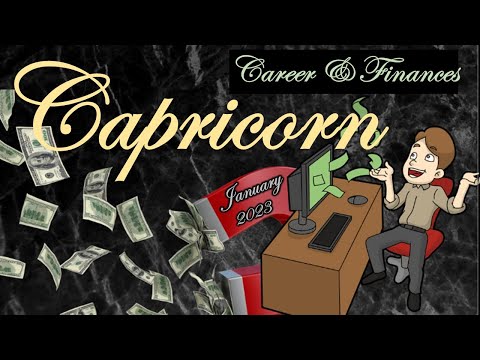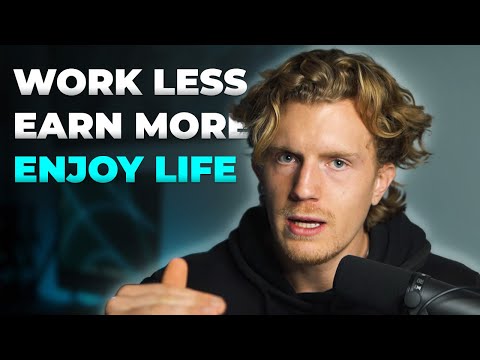CEOs Reveal the Spiritual Component of Running a Successful Business - Swedenborg & Life

How do you run a successful business? Follow spiritual principles. The government of Canada just released this video, highlighting companies who successfully pivoted during Covid, and in it you have CEO Glenn Bostock talking about how it's crucial to start with figuring out how to be useful, which is a direct Swedenborgian principle. His business, SnapCab, is a 20 million dollar company with 120 employees doing work with multiple fortune 500 companies, and their corporate culture and even corporate structure is based on elements of the Divine Design. Kendall,
the organizational strategy manager at SnapCab, found that it was worth prioritizing useful impact over individual credit, and that doing that freed her up into a new level of receptiveness and collaboration with her team. But it's not just confined to one organization. Carl Godlove, head of Godlove Group, and 20 years CEO and author of the medium post “My Delusional Hope for Love in the Workplace,” has created a graphic map to show businesses how having a higher purpose that flows from divine principles can get the most out of everyone involved. Okay, so what are these principles? The ones we're going to focus on today are: (1) any community of people, from a team to a company, right up to a society of angels in heaven, functions more and more perfectly the more it's organized to mirror the human body; (2) ideas and passions are incomplete without something constructive to accomplish; (3) the desire for individual credit is ultimately a mirage; and (4) organizations can be at their best when they unite the body of their members’ heads, hearts and hands by serving a higher purpose that flows from divine principles, the highest authority and source of love and truth. If you want to really explore the idea of a community of people organized in the human form. see our episode “The Shape of Heaven.” Now there's a totally
essential principle that this all collapses without. When selfishness and materialism drive business and business leadership, massive amounts of harm can be inflicted, and have been inflicted throughout history. Making money isn't a problem. It can be great. But all resources have to ultimately look to making a positive impact on the world, with an enriching of self and others in the organization as a means to that end. To really drill down into that, we have a five-minute clip on how a heavenly love for the common good drives proper business ethics called “The New Bottom Line.” The way businesses are run has a huge impact on the human race, from the products made and the services offered, to the working experience of all of us who participate, to the societal and environmental ramifications. Just think about all the potential of getting corporate philosophy saturated with spiritual principles! Now that we're all set, as we'll touch on later in this show, principles don't mean anything unless you put them to use.
So let's dig into how people can, and are, bringing these ones to life right now. The human business. So here's a little bit more from that clip that we referenced in the intro, and in it you'll see Glenn, the CEO at SnapCab, and you'll hear him use a word two times. Try to pick out what that is, because it's a very significant word. We had two choices. The initial reaction was to hunker down. We can stretch this out maybe four or maybe five months before we go out of business. And the other
way is to ask the question: what can we shift to? I'm Glenn Bostock, CEO and founder of SnapCab. Before the pandemic, we made a product line of office pods designed to give you audio privacy. As the situation was unfolding, we felt stuck. We were making little conference rooms, and everything we're being told is, “spread apart”. We watched the prime minister on TV. In his address, he said something about, “what can you do to help?”. And that really sparked something in us.
We started thinking: what can we do with our manufacturing capability to help people? The answer was right there in front of us. By modifying our office pod system, we were able to develop testing pods to keep health care workers safe. Now we're helping to reinvent the workplace of the future with private isolation pods that allow for a safe return to work. And luckily, we had help, too. Export Development Canada ensured that we had the financial security we needed to invest and experiment with solutions. And they're with us every step of the way.
One thing we've learned from this is, start with trying to figure out how to be useful, and do something to help. The energy around that inspires people to want to work with you. At the end of the day, if I feel like we're being as useful as we can to our customers, and we're taking care of each other at work, then I feel like I've had a really good day. Useful. Useful. The CEO is talking about being useful, wanting to try to be useful. I’ve got to tell you something. Being useful, or doing something of service to others, according to Swedenborg, is actually the core of heaven — of what it is to be in heaven. From Heaven and Hell 402: “All the pleasures of heaven are united to forms of service.” So there's nothing fun,
there's nothing that makes you happy in heaven, if it isn't somehow connected to doing something useful for someone else. And throughout his books, everywhere Swedenborg uses this term “usefulness”. And Glenn reads Swedenborg. I happen to know this, and that's where he got that idea, and he's using that idea in his business to do good stuff. So what about other principles? Can other things from spirituality work at, let's, say SnapCab? Well, here's one. This is from Heaven and Hell. This is a title. “The whole heaven grasped as a single entity reflects a single individual.
It's a secret not yet known in this world that heaven, taken in a single, all-inclusive grasp, reflects a single individual. In heaven, though, nothing is better known.” So all of it together somehow seems like it's one person. "Knowing this, knowing particulars and details about it, is the hallmark of angelic intelligence there." So that's like, you've got a deep perception. If you can get: we all work together, just like all the parts of a person work together. “Actually, angels do not see heaven in a single overview in this kind of form, since the entire heaven does not lie within the scope of any angel's sight. However, they do consistently see particular
communities that are made up of many thousands of angels as single units in this kind of form, and from the community as a sample they draw their inference about the totality that is heaven. This is because in the most perfect form the greater elements are arranged like the parts, and the parts like the greater elements.” So this human form, all the parts working together like they do in the body, it's ... it is heaven. And it is all the
communities. They follow the same template. And when something has a large scale and a small scale that function with the same template, it actually makes it more perfect, according to Swedenborg. Kind of like the little cells are each kind of like a big giant person in their own right. Okay, that sounds like a lot of theory. What would it look like to actually do
a more earthbound community in this human form template? Like let's say, a business? Well, Glenn, who actually is an avid consumer of Swedenborg, I happen to know, takes this principle and applies it to his company, SnapCab. This is from an internal video at SnapCab. When I first started in business, it was just me making the products. I was all by myself in the shop. I did the bookkeeping; I did the manufacturing; I went out and did the sales; I did the design work; I did the installs — I did everything. But now we have lots of people. So let's see how many people we have now.
We have about 120 employees right now. You can see that it's exponentially more complicated. Instead of having everything coordinated in one single brain — that's so lean, but not very scalable — we've now scaled it up into 120 people in two different companies in two different countries. So let's just see what that looks like. We have a whole team of people now in the head. You've got lots of people in production. So you have lots of people in operations. They're over here
running the show. You know there's all kinds of parts of the company, where where people are doing things. You've got people, well, you've got people here, doing strategic planning and thinking about, what are we doing. You have people in marketing, getting it so that
they love the company, and they're getting other people outside the company that love us. You've got people always breathing in new inspiration, and new ideas for new products. You've got people here in manufacturing that are busy streamlining our processes. You've got people supporting manufacturing. We've got all kinds of people in shipping.
You know, we've got people in sales. We've got all kinds of people that make the company go, and they're doing all parts of a company that, you know, if you... if you ran a... if your kids have a lemonade stand, they're doing all these same things, but they're just by themselves. You know? They're doing the manufacturing of the lemonade. It's all the same thing, so it's a fractal. But as the fractal gets bigger, the company itself turns into, like, an organism.
So this form can apply anywhere. It's like a fractal. We saw in that Swedenborg quote earlier that this thread runs not just through the different scales of businesses — so, you can have a small team on a business in the human form, then a larger organization in the human form, then a whole, like, conglomerate in the human form — but all through all human communities and societies, right up through to heaven, and then right up to the Lord. This same form is operating in all of them IF they're operating in the Divine Design, if you have that uniting into a community. So
what unites people into a community? The essential element is a unity of focus. Instead of you, by yourself, doing your one product, making lemonade or being a house painter or a landscaper or a cabinet maker, now there's 120 people doing all the different parts, and they all have one aim, one focus. So it's a wide range of people that you want to be focused together, and they're all different people, with all different skills. So it is with angels. Heaven is heaven because of their unity of focus. And what do angels focus
on? Swedenborg talks about it in Secrets of Heaven 1316. “When the common good of all is what people focus on…” And anybody, if any of us do this. “...then no one ever usurps another's happiness, or destroys another's freedom, but promotes and increases it as much as possible. This is why heavenly communities seem to form a unit, and this is the effect of mutual love alone, which comes from the Lord.” So that love brings everyone together, and it's something you and I can
participate in, if we just focus on what's really loving for other people. Useful impact over individual credit. I’ve got two principles to lay out for you here, and the first one came directly out of the mouth of an angel, as recorded by Swedenborg, in Revelation Unveiled. The angel said, “Love and wisdom, without useful endeavor, are nothing real.” Ah! “They are only theoretical entities and do not become real until they find expression
in useful endeavor.” You can have all the love and knowledge, but if you're not doing something, it's nothing. Okay, that's principle one. The second: there's a little thing that we're pretty interested in as human beings, which I will call here “getting credit”. Angels are entirely uninterested, believe it or not, in getting credit for things. What angels are interested in, instead, is giving credit to the Lord. They don't actually even get any joy from personal praise. What they get joy from is good being done, and their knowledge that, yep, that is really helping someone. That's a cool frame of mind. How could we put these principles into practice in a human way,
in a human environment? So let's go back to SnapCab, and let's see what the experience has been for their organizational strategy manager Kendall Hyatt. Something that has really thrown me for a loop at the company where I work is that I am asked to produce a bad plan for my ideas. And to me, intuitively, a bad plan means bad results. Why would I offer that for
other people's review? And SnapCab leadership is interested in pencil sketches, prototypes, and, you know, I'm in this pod with white boards so that I can write down ideas, and capture images and text pictures to people, and it's all very rough. And my whole self has been invested in putting time into a paper at school, or putting time into a whole story so that I can share it in an articulate way. And it is a total reversal of my impulse to offer for someone else's review a pencil sketch or a marker board image. And I've come to like it a lot, because there's freedom in doing it imperfectly, and that the whole point is to invite other people into what I'm doing at an early stage, so that there is a possibility for collaboration, and possibility for improvement, and that the point is to put a good idea to use immediately so that it doesn't languish in its polish in my notebook. And that has certainly been my
experience, especially in my academic life before my work life, is spend 15 hours on a paper, get an A plus, and move on to the next assignment. And this world of work at SnapCab is very much about making use of ideas. Because as Swedenborg says, the real use of love and wisdom is animating them in life, and doing something with it. Usefulness is in doing. And there's part of me that is deeply uncomfortable with that, given my comfort in a polished, private idea. And my work challenges me to bring to the table more vulnerable ideas, so that they can actually do some good for the people in my SnapCab community, and also eventually for our customers.
So here you have bad plans, and taking ideas before they're fully baked and putting them into this stream, so that we can use these two spiritual principles. Because you have... the opportunity for individual credit decreases, but the output of usefulness to the people that are going to receive, you know, whatever comes of those ideas increases. So overall, this system makes it so that we're less obsessed with, you know, am I cooler than my co-workers, and more obsessed with: what have we done for the world today? Higher purpose driven. So we've got the human ego, or self-interest — what Swedenborg might call the outer self. I know we... it's okay,
you can admit it. We all have it. We've also got the higher purpose, or this is the divine will, to call us to something greater — to this love for the human race, to doing something for the common good. And, so we've got that. Then we've got these two primary vessels in each of us, what Swedenborg calls volition and discernment, and these are the receptors or repositories for what we believe and what we love. So how does all this fit together in the Divine Design? And
how can applying these principles go wrong in an organization, or how can it go very right? This is Carl Godlove, 20-year CEO and head of Godlove Group LLC, to explain it to us. Without a reason to tend to, something else humans will tend to is their own survival, and will go to great lengths, out of fear, to protect themselves and stay safe, even at others’ expense. But these same people, when feeling safe and secure, can be recruited to a purpose greater than themselves, and be passionately focused on it. How? Well,
that's the topic. We'll start by asking: how do we discover our organization's higher purpose? Then we'll trace its path to the useful work of those who carry it out. Let's begin by exploring what stands between a purpose and its adoption. Well, a purpose is a concept, an idea, and all new ideas have two freewill gatekeepers: what we believe in the mind, and what we value in the heart. Both are strong, and resist forceful change. The harder we push, the harder they push back.
Swedenborg knew this. He speaks like he's addressing modern-day employee engagement. “Anything planted in our mind in freedom stays with us, but anything planted in our mind under compulsion does not last.” Things we do under compulsion do not come from our own motivation, but from the motivation of whoever is forcing us to do them. So what exactly happens to a new idea? First, discernment plays with it until it's either believed or rejected. Then, if believed, it travels to the heart, which asks: “do you value this belief?” The heart then answers in the language of emotion.
If the idea resonates in the heart, volition — our impulse to act — will show up. If it doesn't, it won't. Swedenborg says this about the responsive relationship between the heart and volition. “Love and wisdom, and therefore our volition and discernment, are that entity that we call the soul, and the soul's impulses affect the body and make everything in it work.” In other words,
our will to act responds to the heart, not the mind. It responds to emotion. When a belief inspires you to act out of love, your head, heart and hands are connected to your purpose. When a shared belief inspires an entire organization to act out of love, all heads, hearts and hands are connected to their common purpose. And that is powerful alignment! This parallels Swedenborg's universal human — heaven in the human form, its members in service to the whole. This Divine Design can yield a very high-performing workplace. People working toward common goals, inspired by a higher purpose that is powered by shared values and beliefs.
Yeah, that sounds great! But is it practical in business? Emphatically, yes! I spend my days helping CEOs and their leaders create this alignment and bring it to life. First, we uncover their higher purpose by centering on their competencies and exploring two things: what they care about most deeply, and what they believe to be true about that. Then they choose their vision for the reputation they wish to own in their markets, the authority they wish to command that's aligned with a higher purpose. Next, they determine their mission, the overarching achievement they believe will bring about their vision. This is their organization’s purpose. Advancing the mission is progressive, and accomplished through what I call strategic imperatives. To stay focused and agile,
these move forward operationally under agile management and rolling planning. The strategic and routine work now advance together, connected by their common purpose. That's the flow. But what exactly is flowing, and what role in this flow does the Divine higher authority play from its ruling position at the top of this model? I've witnessed organizations neck deep in fear. I've suffered through it myself. But you won't find a solution to this in any business book. The cure lives in the hearts of people who have touched the Divine and lived to tell about it.
Yes, near-death experiencers, now numbering in the millions, corroborate Swedenborg's declaration of Divine Love. He put it this way: “God cannot even look at us with a frown.” So my answer is very simple. I equate the Divine with Love. When love has authority over an organization, love flows. And when it doesn't, fear flows, and it will fill every space devoid of love until it has choked off every pathway to alignment. Nothing but love can flow from the Divine's pure goodness. So call it what you will. I call it
God is Love. Nothing is more relevant in life and business than the essence of what created us. The DNA between us, the common thread that runs through every human being. That's what I believe to be true, and that's what I attribute to the Divine, my term for the Source of all that is.
So my bottom line is this: whatever we do, when we do it with love, we are connected and aligned. If reaching for this happens to bring heaven to the workplace, bring it on! In the meantime, while we're on this journey, love in the workplace is a pretty sweet benefit. So we're learning these spiritual principles, and how they can help guide the way that business is done on planet Earth. And what are they again? First of all, focus on usefulness — that doing something is the key to... should be the key to business, just like
it's the key to heaven, and the key to a happy human race. The human form — that organizations of all sizes function better when they approach the human form. So when... just like there's this total interdependence and cooperation between your different organs and muscles and things, that's the way we should be partnering together, in all our different forms, to get something done. Good done over credit, or as some people like to say, “done is better than perfect”. It's not about
who came up with it; it's about what's the end net impact. And finally, higher-purpose-driven. Can we keep the main thing the main thing, rather than being guided by little, self-serving agendas. Let's tap into the divine agenda for the human race. If we all do that — in our lives,
in our businesses — I'm sure that we could make just a very cool world to live in. Intrigued by what you heard? We pack every week with love-powered programming for you to enjoy. Check out our website to learn about all our resources. While you're there,
subscribe to the quick update to always know what's coming next. And consider supporting our work with a donation. Your support helps new people find these life-changing, love-based, and truth-packed ideas every day.
2021-01-13 11:12


